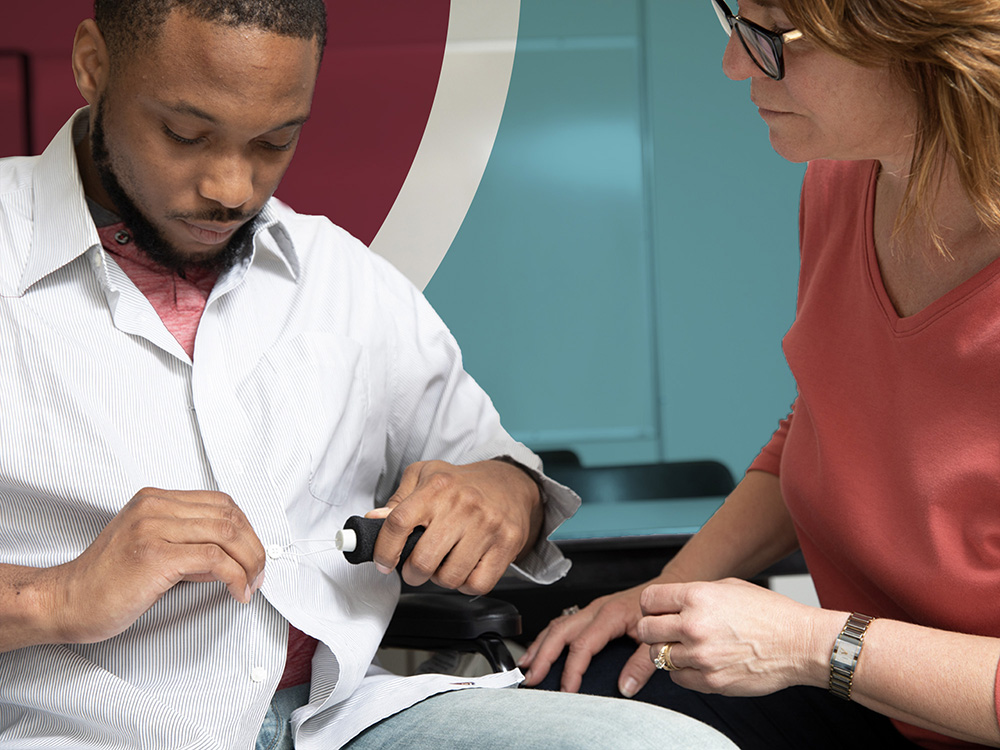Should I Be An Occupational Therapist? A Quick Guide
Learn What It Takes And Means to Be an Occupational Therapist

We often hear from high school students that unless they personally had an occupational therapist, they aren’t completely sure what occupational therapy really means. And that makes sense, since OT isn’t one of the main subjects you learn about in high school.
That said, we are so glad you’re reading this.
For anyone who aspires to have a fulfilling career in the health sciences that requires compassion and makes a difference every single day, studying occupational therapy in college is an excellent choice.
So here’s a quick guide for high school students who are curious about occupational therapy. When you’re done reading it through, we invite you to learn about Touro’s occupational therapy program.
What is occupational therapy?
Occupational therapy helps people of all ages develop the skills needed to manage everyday life activities. For some people, simple tasks in the home, workplace, school, community, or other settings pose challenges for a variety of physical or mental reasons; occupational therapists help improve their abilities to perform those tasks.
What are some examples of where occupational therapists work and what they help with?
As an occupational therapist, you might find yourself working...
In daycare centers or K-12 schools:
- Working with infants and toddlers on grasping toys and other objects
- Helping students with writing and copying notes, holding and controlling a pencil, using scissors or computers, throwing and catching
- Helping children with autism and other disorders with sensory issues
In hospitals:
- Helping recovering patients with basic routines, like bathing, getting dressed, brushing teeth, and eating
- Training parents or caregivers of newborns who have physical or mental disabilities on how to make sure they develop as healthy as they can
In outpatient clinics, long-term care facilities, hospices, or rehab facilities:
- Teaching patients how to learn new ways of doing things
- Helping them develop positive behaviors, stress management skills, coping skills, and more
- Visiting their homes to help them modify the layout to prevent falls
In private practices:
- Recommending special equipment that can help make a patient's life easier
- Working with athletes to re-develop basic skills after an injury
- Visiting workplaces to identify processes that could be adjusted to better avoid injuries
The list goes on, but that should give you a good idea of the kinds of interactions occupational therapists have on a daily basis—and the countless ways individuals and organizations can benefit from OTs. That’s one of the most exciting aspects of being an OT; you’ll be in a position to open a lot of doors and start fresh in a new workplace setting.
How do you become an occupational therapist?
To be an occupational therapist, you’ll need a bachelor of science degree in health sciences combined with a master of science degree in occupational therapy. (That's what Touro’s 3-year occupational therapy program comprises.)
Credentials and experience aside, however, there are certain skills and personality types that make for an exceptional occupational therapist. These include:
- Patience
- Compassion and empathy
- Creativity
- Communication skills
- Problem-solving abilities
- Flexibility
- Interpersonal skills
How much do occupational therapists make?
According to U.S. News & World Report, the best-paid OTs made upwards of $100,890 in 2018. The median salary was $84,270. As far as the future of OT, the Bureau of Labor Statistics predicts nearly 24,000 new jobs tp open by 2028. In other words, the outlook for OTs is in good shape.
Should you be an OT?
Consider this: PayScale’s College Salary Report recently analyzed data from graduates of more than 2,500 schools and found several fields where workers are not only paid well, but feel that their work is meaningful. We’re happy to say that OT was tied with physical therapy for #5 on that list.
If that sounds like a future meant for you, consider Touro SHS. We’d love to show you around our occupational therapy program and share with you what sets Touro apart.

